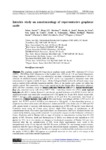Por favor, use este identificador para citar o enlazar este ítem:
http://www.alice.cnptia.embrapa.br/alice/handle/doc/1035854Registro completo de metadatos
| Campo DC | Valor | Lengua/Idioma |
|---|---|---|
| dc.contributor.author | DURÁN, N. | pt_BR |
| dc.contributor.author | MARTINEZ, D. S. T. | pt_BR |
| dc.contributor.author | JUSTO, G. Z. | pt_BR |
| dc.contributor.author | LIMA, R. de | pt_BR |
| dc.contributor.author | CASTRO, V. L. S. S. de | pt_BR |
| dc.contributor.author | UMBUZEIRO, G. de A. | pt_BR |
| dc.contributor.author | BARBIERI, E. | pt_BR |
| dc.contributor.author | DURÁN, M. | pt_BR |
| dc.contributor.author | MELO, P. da S. | pt_BR |
| dc.contributor.author | ALVES, O. L. | pt_BR |
| dc.contributor.author | FÁVARO, W. J. | pt_BR |
| dc.date.accessioned | 2016-02-02T11:11:11Z | pt_BR |
| dc.date.available | 2016-02-02T11:11:11Z | pt_BR |
| dc.date.created | 2016-02-02 | pt_BR |
| dc.date.issued | 2015 | pt_BR |
| dc.identifier.citation | Journal of Physics, Bristol, v. 617, p. 1-9, 2015. Edition of the proceedings 4th International Conference on Safe Production and Use Nanomaterials (Nanosafe 2014) 18-20 November 2014, held a Grenoble, France. | pt_BR |
| dc.identifier.uri | http://www.alice.cnptia.embrapa.br/alice/handle/doc/1035854 | pt_BR |
| dc.description | Abstract: The graphene sample GO:Single-layer graphene oxide, purity 99%, thickness 0.7-1.2 nm (AFM); ~300-800nm X&Y dimensions is the standard size <450 nm & 1-20 ?m lateral dimensions. Cheap Tubes Inc., Bratleboro, USA was selected for our study. Exhaustive characterization of GO was afforded. It exhibited thermal stability over 60oC and it was suspended in deionized water after ultrasonication (1 mg/mL) (stable 10 days). All the biological fluids used in the different assays were used as control of the colloidal suspension stability. Then, all the studies were carried out within that stability period. The cytotoxicity assays were carried out by the Alamar Blue (Resazurin) reduction, MTT and flow cytometry assays in mouse embryonic fibroblast cells (3T3), human keratinocytes (HaCaT), colorectal cancer cells (Caco-2/HCT 116), Lewis lung cancer cells (3LL), acute myeloid leukemia cells (KG-1, Jurkat, Kasumi-1) and chronic myeloid leukemia cells (K562, Lucena) and no significant toxicity was found after exposition to 0.1-100 ug/mL for 24 and 48 h. Breast cancer cells, MCF-7, showed a 20% reduction on cell viability at 24 and 48 h. No cytotoxicity were found in lymphocytes, Chinese hamster ovary cells (CHO) and human macrophage cell line (U937) at 0.1-50 ug/mL, but 30-50% survival inhibition was observed at 100 ug/mL. A dose-dependent increase in apoptosis was observed in some cells (Kasumi-1, Jurkat and K562 cells). In the case of CHO and 3T3 cells, greater levels of necrosis with increasing concentrations of GO (>50 ug/mL) were observed. Genotoxic study using the Comet assay showed slight DNA damage in lymphocytes at all concentrations tested, while more significant effects was observed in CHO cells. Econanotoxicity was carried out by lethality assays in the nematode Caenorhabditis elegans,d in the freshwater coelenterate Hydra, Daphania amd in Shrimp with no signs of toxicity at concentrations varying from 0.1-100 ug/mL of GO. However, death and disintegration of Hydra was observed after exposition to 100 ug/mL for 72 h. In in vivo studies, no changes in biochemical parameters of Fischer 344 rats were observed after the i.p. administration of GO. Some black agglomerates were found in the intraperitoneal cavity of rats injected with GO. However, in Fisher 344 rats-bearing prostate tumors, treatment with GO (up to 100 ug/mL) negatively affected the hepatic parameters, whilst in the renal ones, an improvement was observed. Studies are in progress to understand the mechanisms involved in the uptake of GO by RES. GO appears as a potential non-toxic in vitro and in vivo assays at the concentrations used in this interlab experiments. | pt_BR |
| dc.language.iso | eng | eng |
| dc.rights | openAccess | eng |
| dc.subject | Grafeno | pt_BR |
| dc.subject | Nanotecnologia | pt_BR |
| dc.subject | Fraphene oxide | pt_BR |
| dc.title | Interlab study on nanotoxicology of representative graphene oxide. | pt_BR |
| dc.type | Artigo em anais e proceedings | pt_BR |
| dc.date.updated | 2016-02-02T11:11:11Z | pt_BR |
| dc.subject.thesagro | Toxidez | pt_BR |
| dc.subject.nalthesaurus | Nanomaterials | pt_BR |
| dc.subject.nalthesaurus | Nanoparticles | pt_BR |
| dc.subject.nalthesaurus | Toxicity | pt_BR |
| riaa.ainfo.id | 1035854 | pt_BR |
| riaa.ainfo.lastupdate | 2016-02-02 | pt_BR |
| dc.contributor.institution | NELSON DURAN, IQ-UNICAMP; DIEGO STEFANI TEODORO MARTINEZ, LNNANO-CNPEM; GISELLE ZENKER JUSTO, UNIFESP; RENATA DE LIMA, UNISO; VERA LUCIA SCHERHOLZ S DE CASTRO, CNPMA; GISELA DE ARAGAO UMBUZEIRO, Faculdade de Tecnologia - UNICAMP; EDSON BARBIERI, Instituto de Pesca - SP; MARCELA DURAN, IQ-UNICAMP; PATRICIA DA SILVA MELO, METROCAMP; OSVALDO LUIZ ALVES, IQ-UNICAMP; WAGNER JOSE FAVARO, IQ-UNICAMP. | pt_BR |
| Aparece en las colecciones: | Artigo em anais de congresso (CNPMA)  | |
Ficheros en este ítem:
| Fichero | Descripción | Tamaño | Formato | |
|---|---|---|---|---|
| 2015AA038.pdf | 1,07 MB | Adobe PDF |  Visualizar/Abrir |









